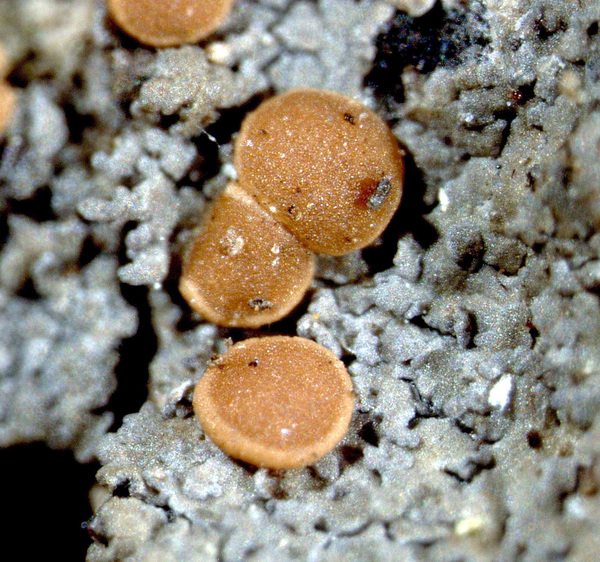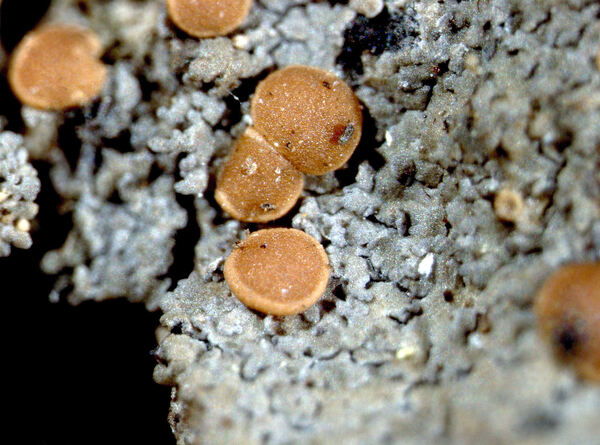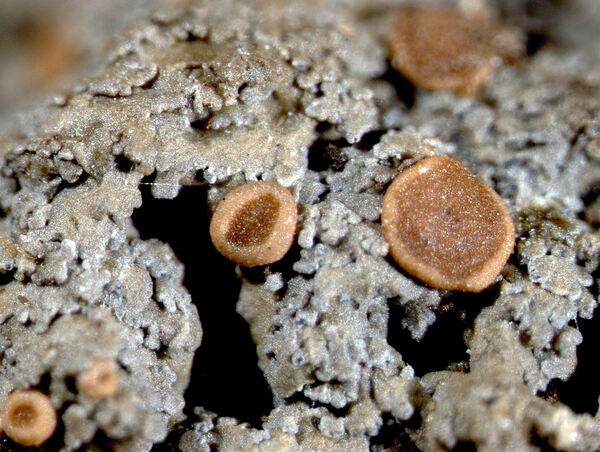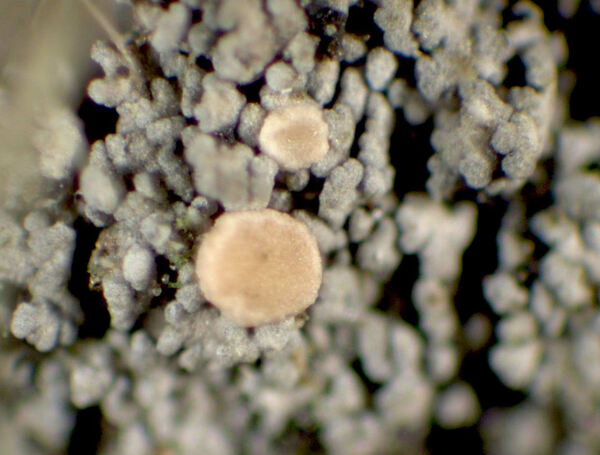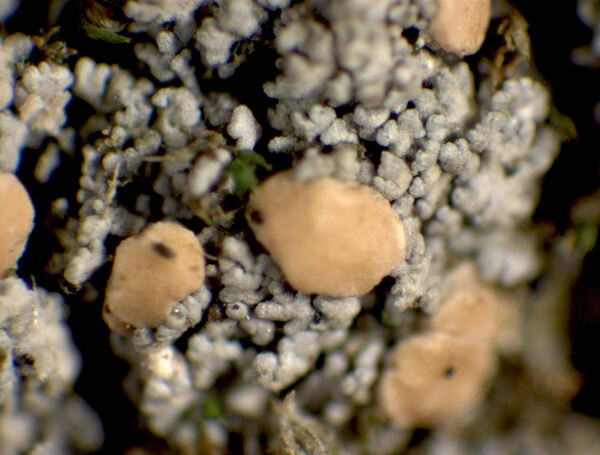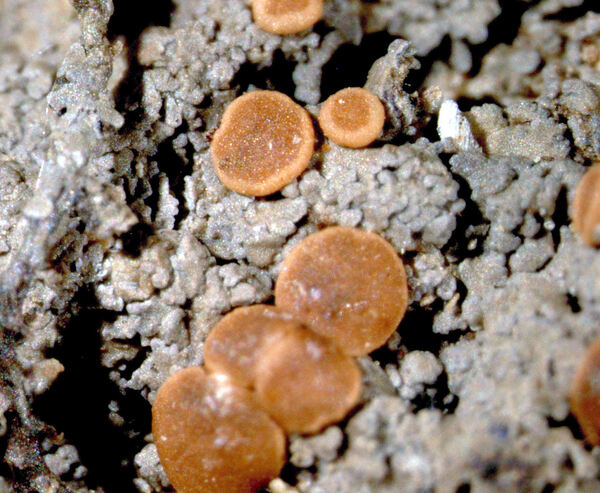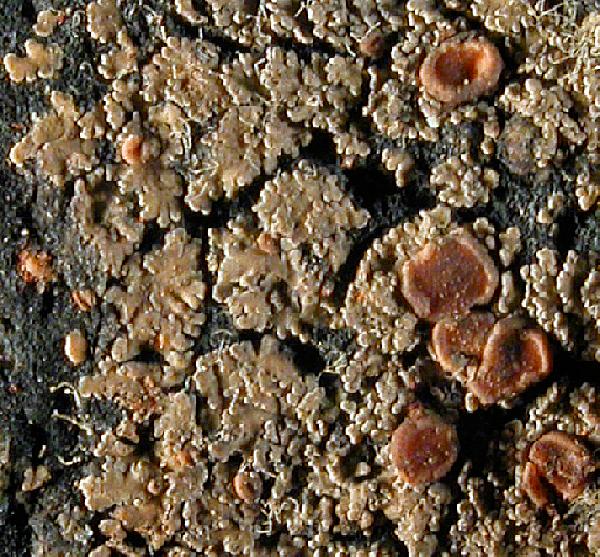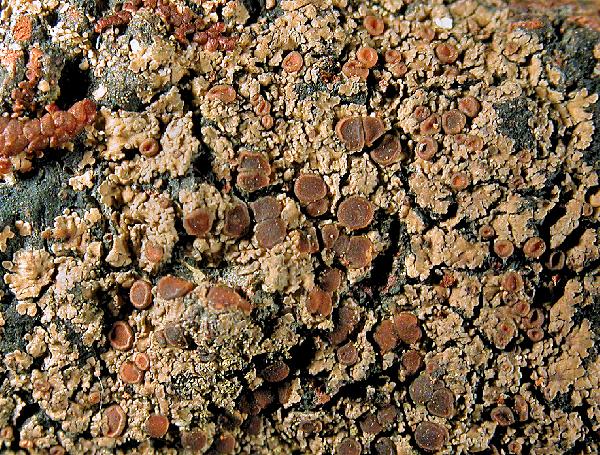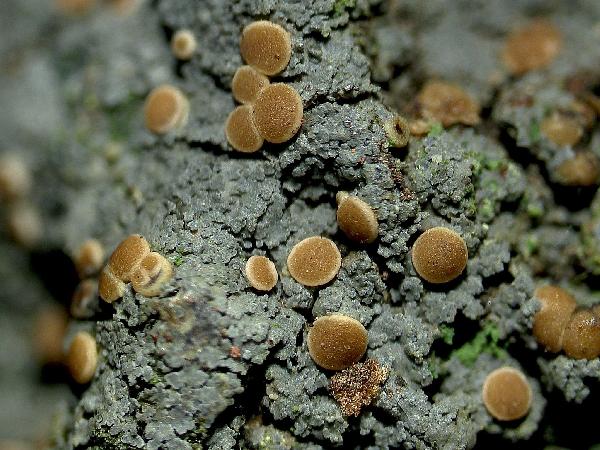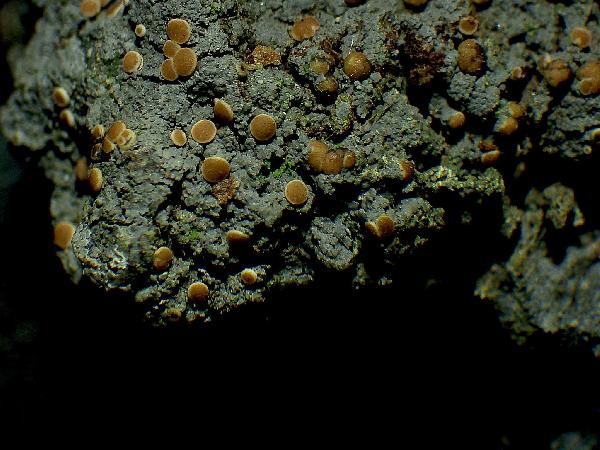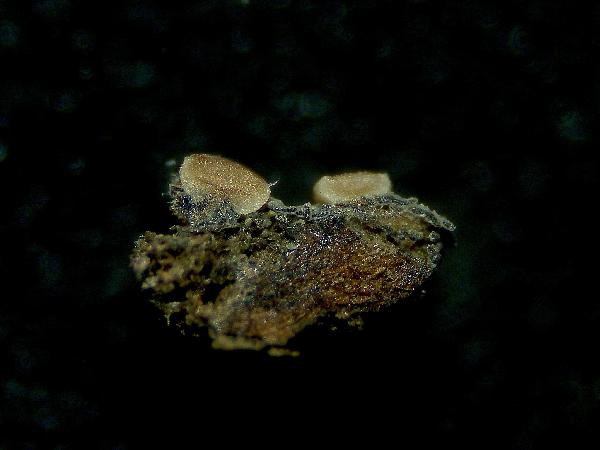Vahliella saubinetii (Mont.) P.M. Jørg.
Lichenologist, 40: 224, 2008. Basionym: Parmelia saubinetii Mont. - Ann. Sc. Nat. Bot., ser. 2, 6: 331, 1836.
Synonyms: Fuscopannaria saubinetii (Mont.) P.M. Jørg.; Massalongia rabenhorstiana Gyeln.; Pannaria saubinetii (Mont.) Nyl.; Parmeliella saubinetii (Mont.) Zahlbr.; Parmeliella saubinetii f. grisea Gyeln.; Trachyderma saubinetii (Mont.) Trevis.
Description: Thallus small-squamulose, heteromerous, the squamules bluish grey to grey-brown, without a white-felted margin, epruinose, (0.1-)0.2-0.3(-0.5) mm wide, with crenulate margins. Upper cortex paraplectenchymatous; medulla white, loose, gradually merging into rhizohyphae; lower cortex absent. Apothecia common, 0.3-1.2 mm across, sessile, with a flat to slightly convex, pale brown-orange to pink-brown disc, and a paler, persistent but sometimes very thin proper margin. Epithecium brownish; hymenium colourless to pale yellowish brown, I+ blue; paraphyses simple, c. 2 μm thick, the apical cells clavate; hypothecium colourless. Asci 8-spored, clavate to subcylindrical, with a thin densely amyloid layer capping the endoascus and an amyloid exoascus, but no other densely amyloid internal structures. Ascospores 1-celled, hyaline, ellipsoid with rounded ends, lacking an epispore, 12-17 x 4-6 μm. Photobiont cyanobacterial (Nostoc, the cells in clusters). Spot tests: cortex and medulla K-, C-, KC-, P-, UV-. Chemistry: without lichen substances.
Growth form: Squamulose
Substrata: bark
Photobiont: cyanobacteria, filamentous (e.g. Nostoc, Scytonema)
Reproductive strategy: mainly sexual
Most common in areas with a humid-warm climate (e.g. most of Tyrrenian Italy)
Commonnes-rarity: (info)
Alpine belt: absent
Subalpine belt: absent
Montane belt: absent
Dry submediterranean belt: extremely rare
Humid submediterranean belt: extremely rare
Padanian area: absent
pH of the substrata:
1 2 3 4 5
Solar irradiation:
1 2 3 4 5
Aridity:
1 2 3 4 5
Eutrophication:
1 2 3 4 5
Poleotolerance:
0 1 2 3
Altitudinal distribution:
1 2 3 4 5 6
Rarity
absent
extremely rare
very rare
rare
rather rare
rather common
common
very common
extremely common
Loading data...
Occurrence data
Predictive map
Growth form: Squamulose
Substrata: bark
Photobiont: cyanobacteria, filamentous (e.g. Nostoc, Scytonema)
Reproductive strategy: mainly sexual
Most common in areas with a humid-warm climate (e.g. most of Tyrrenian Italy)
Commonnes-rarity: (info)
Alpine belt: absent
Subalpine belt: absent
Montane belt: absent
Dry submediterranean belt: extremely rare
Humid submediterranean belt: extremely rare
Padanian area: absent
pH of the substrata:
| 1 | 2 | 3 | 4 | 5 |
Solar irradiation:
| 1 | 2 | 3 | 4 | 5 |
Aridity:
| 1 | 2 | 3 | 4 | 5 |
Eutrophication:
| 1 | 2 | 3 | 4 | 5 |
Poleotolerance:
| 0 | 1 | 2 | 3 |
Altitudinal distribution:
| 1 | 2 | 3 | 4 | 5 | 6 |
Rarity
absent
extremely rare
very rare
rare
rather rare
rather common
common
very common
extremely common
Loading data...
Occurrence data
Predictive map


